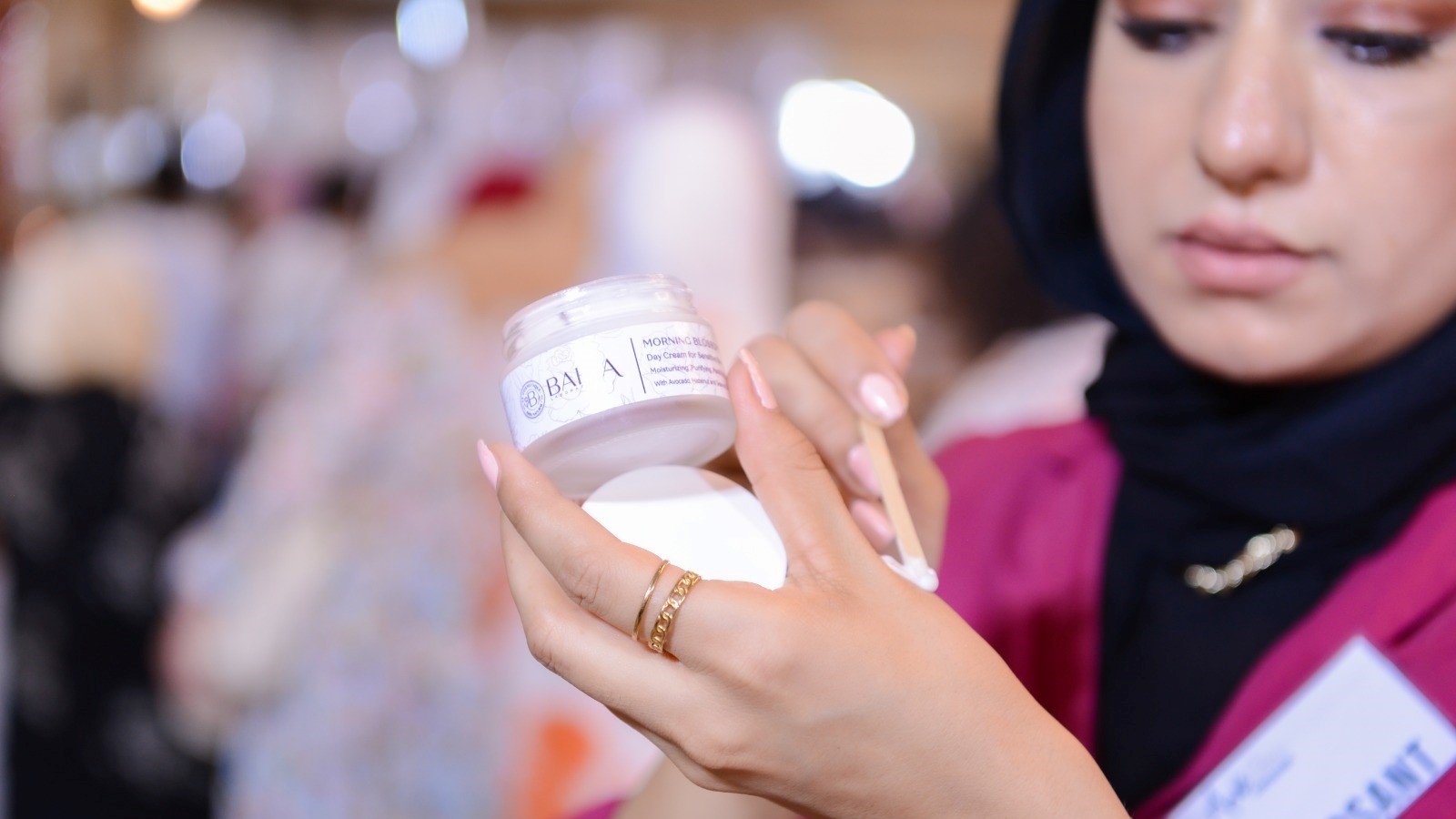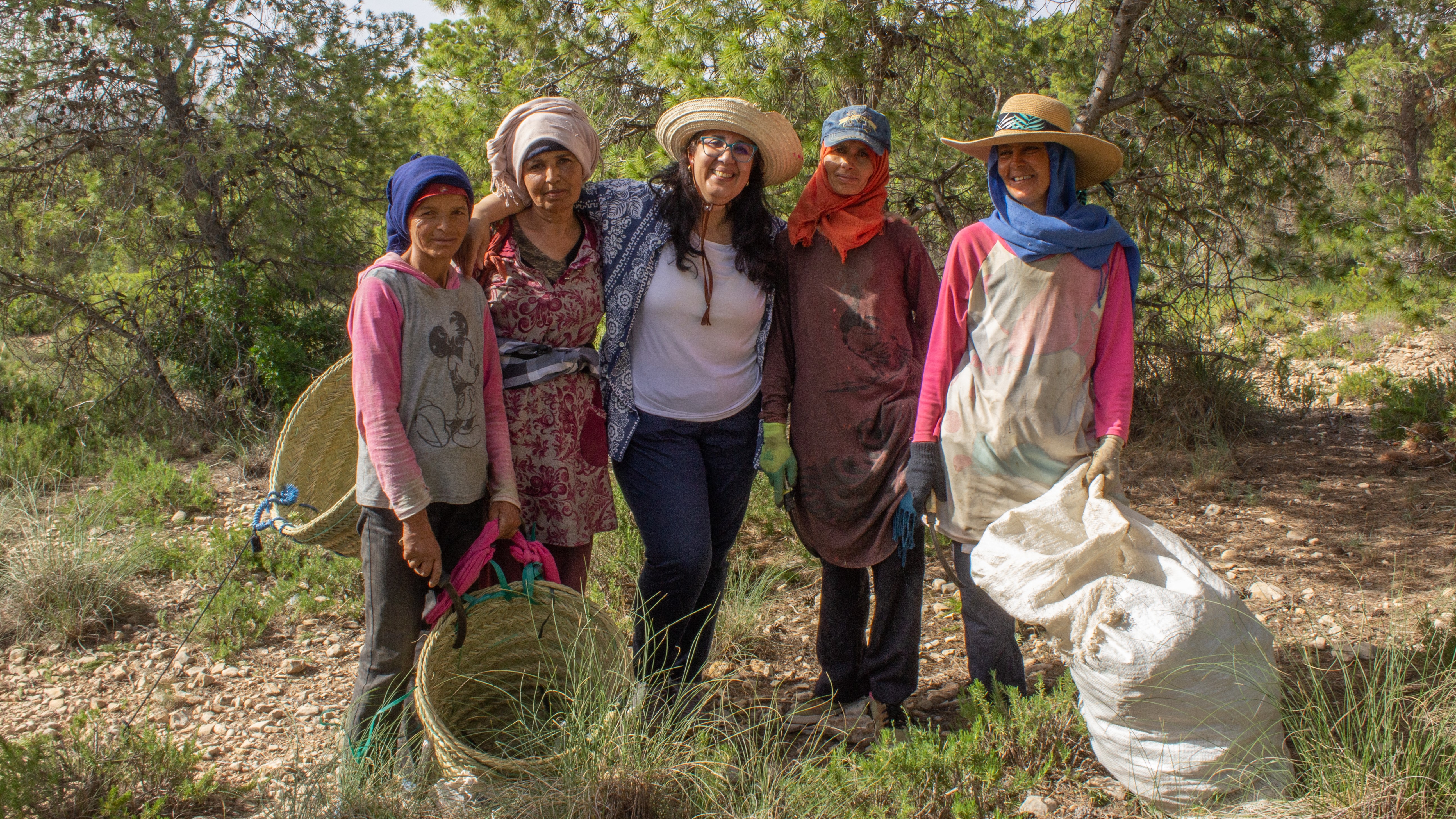

Empowering Tunisian Female Entrepreneurs in Natural Cosmetics to Access International Markets
04 June 2024 UNIDO

Demand for natural and organic cosmetics is increasing globally, and Tunisia is witnessing a surge in demand for natural and organic products, contributing to its socio-economic development. According to the World Bank (WB Report, 2019), the North African nation has approximately 2,000 species of medical and aromatic plants with potential for use in natural ingredients, essential oils, and aromas for cosmetics, food, or para-pharmaceutical products.
Following a gender-responsive analysis of value chains conducted by UNIDO in Tunisia between 2019 and 2020, the sector of natural cosmetics and para-pharmaceutical products has emerged as particularly conducive to fostering women’s employment and entrepreneurship due to the significant presence of women already engaged in the industry, promising market prospects, and the availability of diverse, high-quality local ingredients.
While Tunisia's natural cosmetics sector has notable strengths, it encounters significant challenges that hinder its full potential. The inadequate national regulatory framework fails to meet international standards, impacting the sector's competitiveness on a global scale. Outdated processing methods further affect product quality and increase production costs. Moreover, insufficient marketing strategies and visibility exacerbate difficulties in gaining recognition and penetrating foreign markets, leaving Tunisian natural cosmetics to struggle against established international brands.
However, addressing these challenges directly can strengthen Tunisia's position in the global natural cosmetics market. Comprehensive regulatory reforms and modernized processing methods will enhance product quality and competitiveness. Stronger marketing strategies and improved visibility will attract more consumers and expand market reach, leveraging digital marketing and international trade shows.
Ultimately, overcoming these obstacles benefits not only the natural cosmetics sector but also Tunisia's economic growth and the empowerment of women. Unlocking the sector's potential creates opportunities for entrepreneurship, job creation, and socioeconomic advancement, driving sustainable development, gender equality and prosperity for the nation.
In response to the challenges identified, UNIDO launched a pilot initiative in Tunisia in January 2021 aimed at facilitating market access for women-led enterprises in natural-based cosmetics and para-pharmaceuticals. Through a series of targeted interventions, the project achieved significant advancements in certification and marketing strategies for participating companies. This initiative is part of the regional PWE project phase II (Promoting Women’s Empowerment for Inclusive and Sustainable Industrial Development in the MENA Region), labeled by the Union for the Mediterranean (UfM) and funded by the Government of the Principality of Monaco.

ISO 22716 Certification: A Milestone for Internationalization
The primary success of the pilot project is the obtention of ISO 22716 certification by PWE II beneficiary companies in the natural-based cosmetics and para-pharmaceutical industry. This certification ensures that cosmetic industry products adhere to the internationally recognised Good Manufacturing Practices (GMP) – global benchmarks for quality, safety, and compliance.
ISO 22716 certified companies gain a significant advantage in trading and selling in the European Union, the USA, and Canada, as it assures compliance with regulatory standards and builds trust among international partners and consumers. Europe stands as a leading market for natural and organic cosmetics, representing 38% of the global market value, and consumer demand is on the rise. Furthermore, in 2022, Europe accounted for 43% of global imports of vegetable and essential oils, outpacing Asia and America (Netherlands Ministry of Foreign Affairs' CBI report, 2024).
"The PWE pilot project has produced excellent results for Tunisian women entrepreneurs in the natural and organic cosmetics sector," says Isabelle-Berro Amadeï, Advisor to the Minister of Foreign Affairs and Cooperation of Monaco. "All the supported companies have successfully passed the quality certification audit. I am convinced that this concrete outcome will undoubtedly inspire other companies to pursue certification, which serves as the only credible gateway to export and ensures market sustainability.”
A Successful Multi-Stakeholder Partnership Towards a Common Goal
UNIDO partnered with the Chemical Technical Centre (CTC), one of Tunisia’s leading public institutions supporting industries, and the Ministry of Industry, Energy, and Mines to streamline the ISO 22716 certification process. This collaborative effort involved meticulous preparation, starting with pre-diagnostic to assess the gaps and select eligible companies, followed by a comprehensive support program, offering tailored capacity building, technical assistance, and guidance for implementing quality management systems.
Within the framework of the PWE project, UNIDO has been collaborating with the CTC in Tunisia since 2022, focusing on certification processes. This partnership highlights CTC's pivotal role as a key promoter and developer of Tunisia's industrial and chemical sectors, and its strong international outlook and network.
Each participating enterprise underwent rigorous evaluations and audits, covering various aspects of production, quality control, packaging, storage, and transportation. Through personalised action plans, the appointment of dedicated personnel to oversee quality system implementation, and the establishment of clear organisational structures and responsibilities, the certification journey led, in 2024, to the successful accreditation of all five companies involved in the certification process:
1. Nopal Tunisie
2. Actifs Précieux
3. Herbalya Natural Care
4. Bahia Cosmetics
5. Phytoessentia Laboratoires
“The pilot project demonstrated the potential of our women entrepreneurs and the aromatic and medical plants sector. It marks the first initiative supported by the Ministry of Industry to employ a gender lens. This represents just the start of new partnerships and programs. It's crucial that we seize upon its results and capitalise on its success,” says Nesrine Abid, Director at the Tunisian Ministry of Industry, Energy and Mines.
For the five newly-certified enterprises, the ISO 22716 certification represents more than just a badge of quality; it opens doors to international markets and enhances competitiveness on a global scale.
“I was thrilled to receive the ISO 22716 certification, which means transparency, traceability, and quality. Thanks to CTC and UNIDO, I've realised its importance,” says Bouchra Laouani, founder of Bahia Cosmetic, one of the five enterprises to receive the certification. “I am proud to know that my products now meet international standards and offer better quality. This certification also helped us increase our production capacity and optimise our processes, which were previously more ad hoc."
A Holistic Approach to Women's Economic Empowerment
The PWE pilot project in Tunisia is part of a broader initiative spanning the Southern Mediterranean region. Since 2015, the UfM-labelled PWE project has significantly advanced women-led businesses across seven MENA countries: Algeria, Egypt, Jordan, Lebanon, Morocco, State of Palestine, and Tunisia. Through two phases (2015-2018 and 2019-2024), the project has reinforced women entrepreneurship through knowledge and capacity-building, networking opportunities, awareness-raising, and direct technical assistance to companies.
Moreover, PWE has been instrumental in bridging the knowledge gap in women's economic inclusion data. It conducted studies to identify gender-sensitive value chains and assess women entrepreneurs' access to and use of ICTs in the manufacturing sector, thus facilitating evidence-based policymaking and fostering greater gender equality in economic participation. By combining targeted interventions with a broader regional approach, PWE stands as UNIDO's flagship endeavour in advancing women's economic empowerment and fostering sustainable development across the MENA region.
Read the French version here